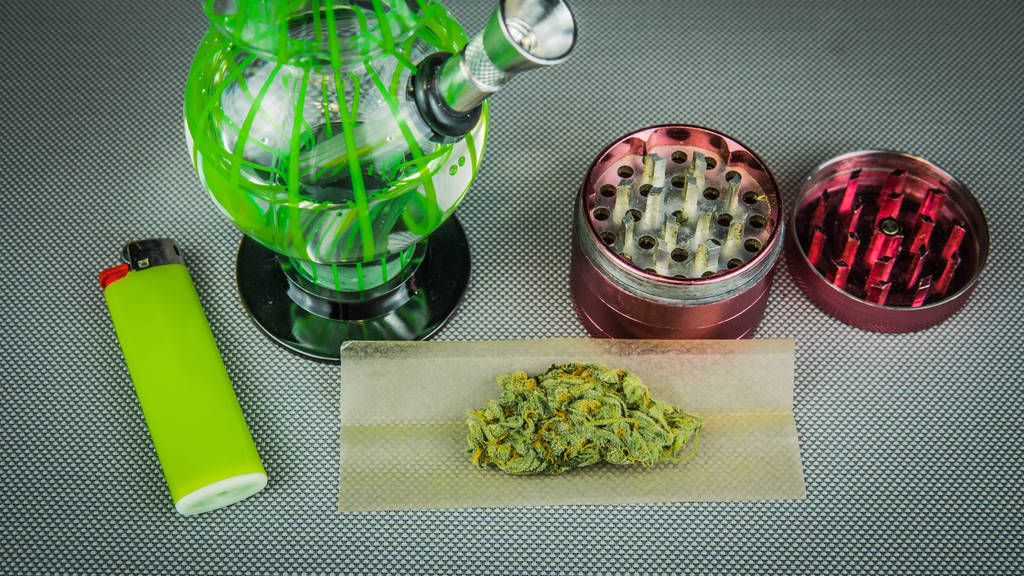Between now and the November 2025 election, multiple states are set to join the 24 that have legalized recreational marijuana.

Recently, we published an article on the three states set to legalize marijuana within the next three months. In this article, we’ll broaden the scope and examine the states expected to legalize marijuana within the next 18 months — between now and the end of 2025.
New Hampshire
Legislation to legalize recreational marijuana, House Bill 1633, has been passed by both the House of Representatives and the Senate, with votes of 239 to 141 and 14 to 10, respectively. Governor Chris Sununu has stated he will sign it into law as passed by the Senate, which made amendments to the House-passed version of the bill, including lowering the possession limit from four ounces to two and establishing a system of state-operated marijuana stores.
Yesterday and today, a conference committee, consisting of members from both the House and Senate, met to resolve differences between the two versions of the bill. Although no final agreement has been reached, most of the differences have been worked out. The committee will meet again tomorrow, which is the deadline for the bill to be finalized by the committee. While it is not certain, several sponsors of the bill expressed confidence after Wednesday’s meeting that an agreement will ultimately be reached.
Florida
Amendment 3, which will be voted on this November, would allow individuals aged 21 and older to “possess, purchase, or use marijuana products and marijuana accessories for non-medical personal consumption by smoking, ingestion, or otherwise.” The proposed limits would permit possession of up to three ounces of dried marijuana flower and up to five grams of marijuana concentrates.
Licensed marijuana retail outlets would be authorized to distribute the plant, with existing state-licensed medical marijuana dispensaries also permitted to “acquire, cultivate, process, manufacture, sell, and distribute such products and accessories.”
Polling data released in November by the University of North Florida indicates strong support among likely voters, with 67% in favor—well above the 60% threshold required for this constitutional amendment to pass, compared to the usual majority requirement of 50%.
South Dakota
South Dakotans for Better Marijuana Laws have successfully placed their initiative to legalize recreational marijuana for individuals aged 21 and older on the November ballot, as Measure 29.
If passed, the initiative would permit individuals aged 21 and over to possess up to one ounce of marijuana and cultivate up to three marijuana plants at a private residence. It would also establish a system of licensed and regulated marijuana stores for distributing marijuana and marijuana products.
In 2020, South Dakotans for Better Marijuana Laws successful placed a marijuana legalization initiative on the November ballot, with it receiving support from 54% of voters. Due to a technicality in the initiative’s language, the measure was thrown out by state courts. A subsequent effort in 2022 that addressed the court’s issues also made the ballot, but failed with 47% support amid lower voter turnout given it was not a presidential election.
North Dakota
North Dakota Secretary of State Michael Howe recently approved an initiative to legalize recreational marijuana, paving the way for supporters to start collecting signatures for a potential vote in either the November 2024 or 2025 elections. The proposed initiative would permit individuals aged 21 and older to possess up to one ounce of marijuana, four grams of marijuana concentrates, and 1,500 milligrams of adult-use cannabinoid products, including up to 300 milligrams in edible form. Additionally, it would allow the personal cultivation of up to three marijuana plants and authorize licensed stores to sell marijuana and related products.
The nonprofit political committee New Economic Frontier now has one year to gather 15,582 signatures from registered North Dakota voters to qualify the measure for the ballot. If the signatures are collected by July 8, the initiative will appear on the November ballot this year. If gathered after July 8, it will be slated for the 2025 general election ballot.
Hawaii
Hawaii made significant strides toward legalizing recreational marijuana this year. Senate Bill 3335, which would have permitted adults aged 21 and over to possess up to an ounce of marijuana and up to five grams of marijuana concentrates, passed the Senate with a 19 to 6 vote. The bill successfully navigated through three House committees and even received a procedural vote from the full chamber. However, its progress was halted in the House Finance Committee, where the chair declined to schedule a vote before the deadline, effectively stalling the bill for the year.
The proposed legislation also aimed to establish the Hawaii Cannabis Authority and Cannabis Control Board within the Department of Commerce and Consumer Affairs to regulate the legal marijuana market, including licensing. Under the bill, recreational marijuana would be taxed at 14%, medical marijuana at 4%, and personal cultivation of up to six plants would be allowed.
Although the bill did not pass this year, advocates remain resolute in their efforts to push for legalization next year. With substantial support from both the public and state lawmakers, it is increasingly challenging for a single committee chair to impede the movement towards ending marijuana prohibition in Hawaii.
Pennsylvania
In April, State Representative Amen Brown (D) introduced House Bill 2210, supported by a bipartisan group of five cosponsors. Just two days later, the Health Subcommittee on Health Care held a hearing to discuss marijuana legalization.
The proposed legislation would permit individuals aged 21 and older to possess up to 30 grams of marijuana, which could be purchased from licensed marijuana retail outlets. While the bill allows medical marijuana patients to cultivate up to five plants, it does not permit home cultivation for recreational users. HB 2210 serves as a companion to bipartisan legislation introduced in the state Senate in July.
Wisconsin
In October, a group of 36 state lawmakers from both the Senate and Assembly introduced Senate Bill 486 and Assembly Bill 506, seeking to legalize marijuana for adults aged 21 and older. These companion bills would permit individuals to possess up to five ounces of marijuana and to cultivate up to six plants for personal use. Additionally, licensed retailers would be allowed to sell marijuana and marijuana products, with sales subjected to a 15% tax.
Although the current Republican majority in the state legislature does not support the legislation, Governor Tony Evers is in favor and included marijuana legalization in his proposed state budget this year. With upcoming elections in November, the legislative landscape may change, potentially increasing support for legalization efforts as we approach 2025.
Arkansas
This week the director of an initiative campaign in Arkansas to expand medical marijuana and create a trigger for the legalization of recreational marijuana said the group is “confident” the initiative will make the November ballot.
The measure from Arkansans for Patient Access would allow medical marijuana patients to grow their own marijuana, while removing the list of qualifying medical marijuana conditions. This would allow physicians to recommend medical marijuana for any condition they deem necessary. The initiative would legalize recreational marijuana, with the possession limit set at one ounce, if the federal government removes marijuana as a controlled substance. Federal legislation in the US House of Representatives to do just that has 89 sponsors in the House and 18 sponsors in the Senate.







